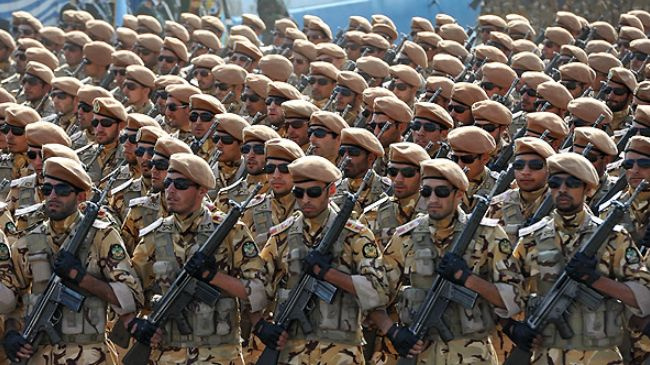Why Iran Is an Unexpendable Force in Syria?

For the first time since the 1980s’ war with Iraq, Iran’s military is adopting for a fundamental change in its behavior, and it’s because of the Syrian war. The change, tantamount to a revolution, has created new powerful factors in the dynamics of regional balance, and it will continue to influence security arrangements in the Middle East. This behavioral transformation, prompted by operational necessities in Syria, speaks much about the performance of ‘resistance’ forces in the country.
Since the beginning of serious military presence in Syria, Iran has applied changes to the mechanisms of its military in order to be able to steer a conventional war, hundreds of kilometers beyond its borders.
This capacity, enjoyed by few countries, has eventually transformed the strategic calculus and balance of powers at the heart of the Middle East. And it is not a shift of short duration. Iran’s military commanders have opted for the change to adapt themselves to new realities of the war in Syria. Such a decision could eventually help Iran to create a classic, organized military force capable of engaging in asymmetrical operation beyond Iran’s borders.
According to statistics at hand, at the moment thirty thousand military forces are ‘advised’ and ‘directed’ by Iran in Syria, forming the largest bloc of military squad supporting the Syrian government. In terms of proportion, they are approximately one-sixth to one-eighth of the total number of forces upholding the Syrian government.
During the past year, Iranian military commanders and strategists have been providing classic training and organization for forces in Syria, the fruits of which were reaped in the battle over Aleppo which was liberated and returned to the Syrian government. For the first time since the Iran-Iraq war, military headquarters organized forces previously geared towards defensive operations into offensive forces able to carry out and direct continuous operations.
Of course, this fundamental change, forced upon by the realities of war and operations in Syria, can be viewed as part of Iranian military’s larger strategy to shift from [a force trained for] guerilla, asymmetrical warfare towards a classic force with offensive capabilities. Iran has come to the conclusion that asymmetrical capabilities –developed to act as deterrence force against the United States and the Israeli regime- is not adequate for responding to necessities of classic war in places such as Syria.
The liberation of Aleppo was evidence of the change taking place in Iran’s behavior, and success of its new approach. Ground forces engaged in the operation, advised and supervised by Iranian military commanders, managed to wrest Aleppo out of the hands of terrorists and rebels after two years, marking a milestone in the Syrian war.
Military forces enacted the operation plan successfully under the leadership of Iranian commanders, fought on the side of local and international partners in Syria, inflicted significant casualties on the enemy, and in an effective shift, changed the course of the war. Iran also introduced a new generation of military commanders, grooming them for sustained transformation of both its military doctrine and military forces.
The shift, and formation of a new hybrid model in Iran’s military forces, born out of the war in Syria, will increase Iran’s clout in the Middle East. Tactics and trends developed in Syria will allow Iran to acquire the capacity for military presence in its classic form, as a power.
This means that Iran will continue functioning as a dominant actor in Syria, regardless of Moscow’s future acts and decisions in the country. Russians are well aware of this reality, and of the shift in Iran’s military mindset. They have left ground operations in Syria to Iran and are unwilling to substitute forces under Tehran’s commands with thousands of their own soldiers. Therefore, one should not take seriously recent remarks by Israeli PM Benyamin Netanyahu and US Envoy to the United Nations Nikki Haley who have called for Iran’s withdrawal from Syria, since that would mean replacing thirty thousand military forces, which neither the United States nor Israel are able to provide. Turkey, in the meantime, is heavily engaged in the Operation Euphrates Shield, and its heavy expenses and casualties do not allow for a surge in military force without support from the US-led alliance.
Other alternatives included Saudi Arabia, another US ally. However, occupation with the war against Yemen and their inexperience in ground operations is a grand challenge. Moreover, forces that are going to replace Iran should be as trusted and as close as the country to Russia. Arab military forces clearly lack this precondition. Kurds are another alternative, but their complex relations with Turkey means Ankara will refuse to accept them as a new military factor in Syria. All of this mean that calls for withdrawal of Iran and Hezbollah forces from the war in Syria are not operational and more of a wishful thinking.
* This piece was originally published in Tabnak, a moderate Principlist website affiliated with former IRGC commander Mohsen Rezaei.

